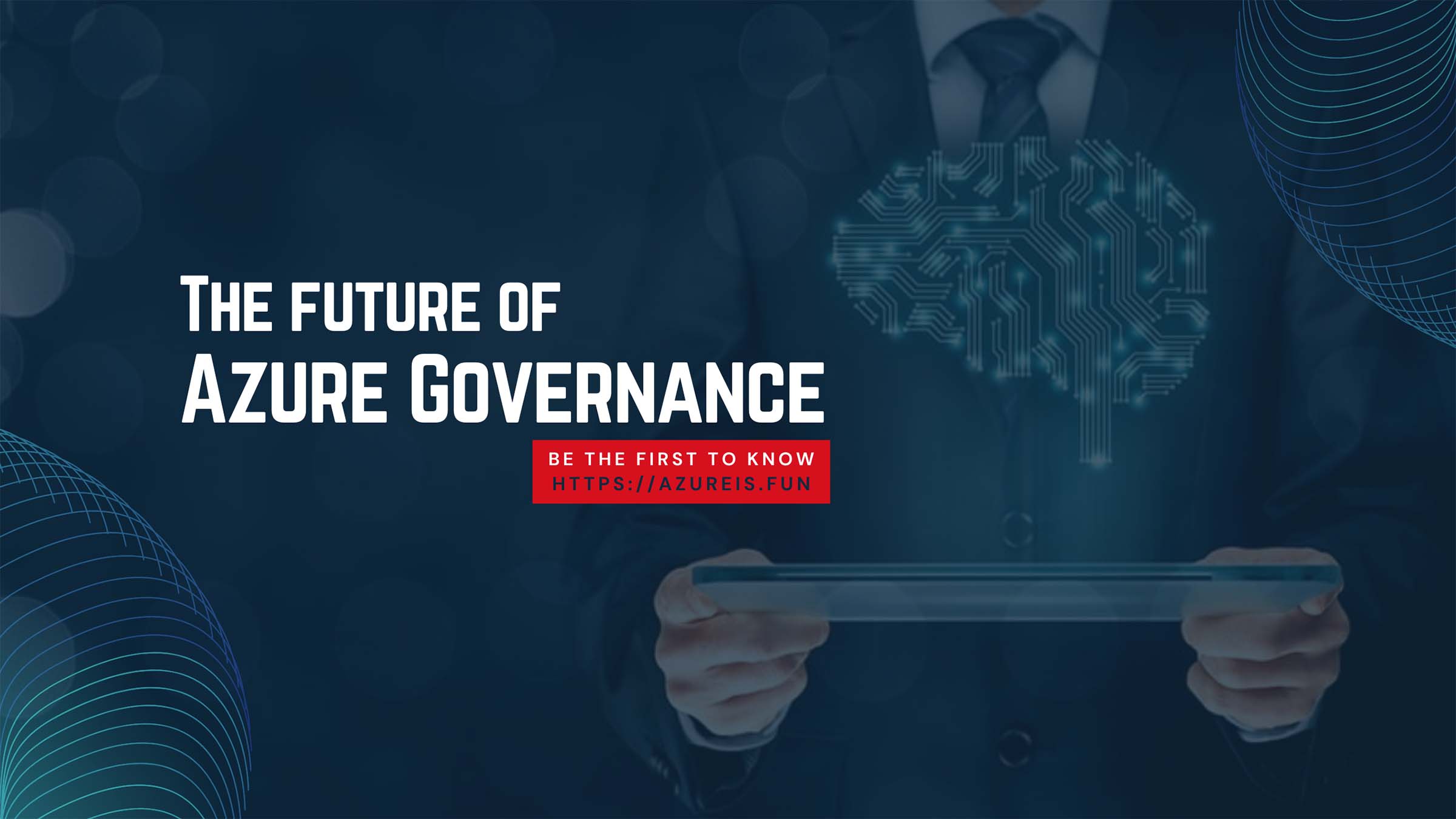
Azure Governance is an essential discipline for small companies and large enterprises to maintain their cloud infrastructure and ensure that their resources are used efficiently and securely. And we have all the tools that we need to achieve that. However, companies are not always good at keeping their environments governed and secured.
Why we fail with Azure Governance
Here are a few reasons why we fail with Azure Governance:
- Ignore governance until it is too late and the environment is already a mess.
- Lack of automation. The way that governance is done or enforced requires too much manual work to keep assets governed and secured.
- It is not properly enforced, and many exceptions are allowed.
- Too many rules that are slowing down operations or growth.
- Governed environment can’t balance agility and flexibility and is becoming a bottleneck for innovation and growth.
Solutions for all of these issues already exist today, and they are available to us. We can start with a governance plan early on, before deploying resources to Azure. We can automate everything, eliminate exceptions, use agile methodologies to achieve faster implementation of changes, etc.
All of that requires a skilled Cloud Operations IT team, with enough resources and time on their hands. And that is a real struggle. Especially for companies that are starting to adopt the cloud and do not really have necessary skills or processes.
It is difficult to justify hours needed to create templates and automate simple tasks, that take just a couple of minutes to complete. It is not easy to adopt new agile processes and methodologies or to change their approach to security.
The good news is that the future of Azure Governance is looking bright :-)
Azure Governance Trends
As the use of Azure continues to grow, there are emerging trends in Azure governance that are shaping the future of the field. Let’s explore these trends.
Governance as Code
Governance as Code (GaC) is an emerging trend in Azure Governance. GaC is not different from Infrastructure as Code (IaC), and it is a practice of using code to define, manage, and automate the governance of cloud resources. This means the automation of governance policies and rules. For example, you can use GaC to define Azure resource naming conventions, and automatically apply those conventions to new resources as they are created. You can also use code to version control your governance policies, making it easier to track changes and audit compliance with regulations.
Azure Governance with DevOps
Another trend that is expected to become more important in Azure Governance is the integration of governance with DevOps processes. This integration can help ensure that applications are developed and deployed in compliance with governance policies. For example, you can use Azure Policy to enforce governance policies on Azure resources and integrate those policies into your CI/CD pipelines.
Multi-Cloud Governance
As more organizations adopt a multi-cloud strategy, there will be a greater need for consistent governance across different cloud environments. Azure Governance will need to integrate with governance tools for other cloud providers to provide a unified governance approach.
Azure Governance Future and Predictions
Now let’s make some predictions about where it is headed.
Artifical Intelligence
The use of artificial intelligence (AI) is expected to become increasingly important in Azure Governance and in the way we approach our Azure management in general.
Azure is already using AI-powered tools to make predictions. We already have anomaly detection that can help us prevent overspending, or Azure Advisor that is helping us detect and even resolve some of the common mistakes related to cost optimization, performance, high availability, or security. And these features are going to be even more powerful in the future.
But I also expect AI to help companies with much more. Here are some practical examples:
AI Powered ChatBot with integration to Azure API
The user requests a new resource for their application. AI will assess the request, approve or deny, and deploy the application/server/container/whatever from an existing template. Using newest Azure AI Copilot capabilities, users will be able to request new dashboards and get access to data seamlessly.
AI will write code
We already can see massive developments in this area, and we already have AI powerful enough to write code. Cloud OPS teams will be able to request automation scripts or IaC templates for their environment, and AI will write and test it. This will simplify adoption of task automation, IaC and GaC, and help reduce the risk of human error and improve the speed of decision-making.
AI will train users
AI will be able to mentor and train users in different areas, explain complicated terms and test users’ skills. It will also be able to provide real-life examples and suggest solutions for described problems.
Documentation
AI will be able assess the environment and written code, and write full documentation about useage and configuration.
Machine Learning
Another prediction is that Machine Learning (ML) will be more integrated with existing governance tools. ML algorithms can be used to analyze log data to identify potential security threats, avoid performance peaks, and predict user behavior. This is already accessible today, but my prediction is that these ML models will train themselves automatically and provide user-friendly results.
Azure Governance will continue to evolve and become more integrated with other areas of cloud management, such as security, compliance, DevOps, and cost optimization. AI and ML will play a larger role in automating governance tasks and improving compliance and security. As organizations continue to adopt a multi-cloud strategy, there will be a greater need for consistent governance across different cloud environments.
If you want to learn more about Azure Governance, check out my other blog posts on Azure Governance topic.
What are your predictions for Azure Governance?
Azure Spring Clean 2023
This blog post is part of another annual Azure Spring Clean, a community-driven initiative that is again gathering community-created content focused on managing and cleaning Azure tenants, and that is something we all need. So, be sure to take a look and see what it’s all about!
Vukasin Terzic
